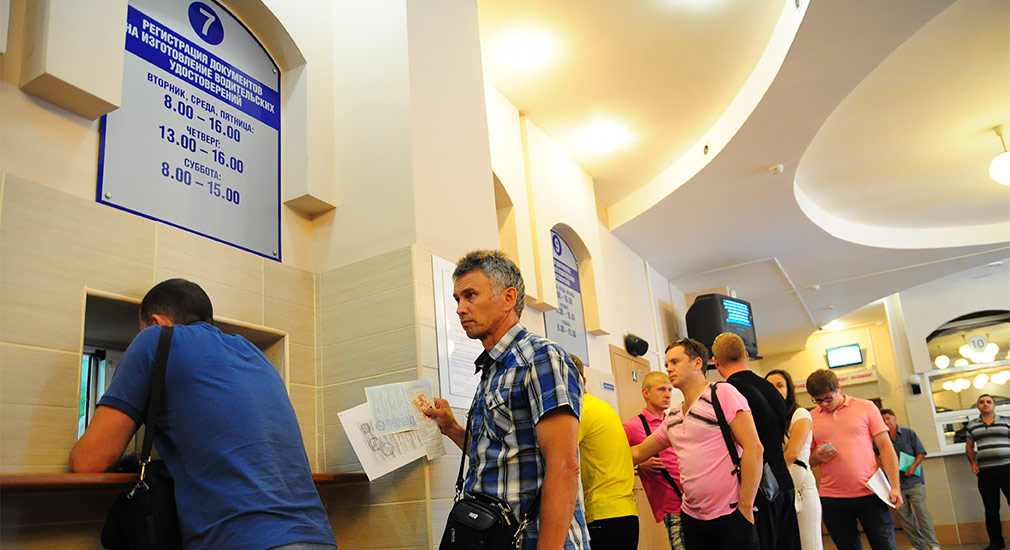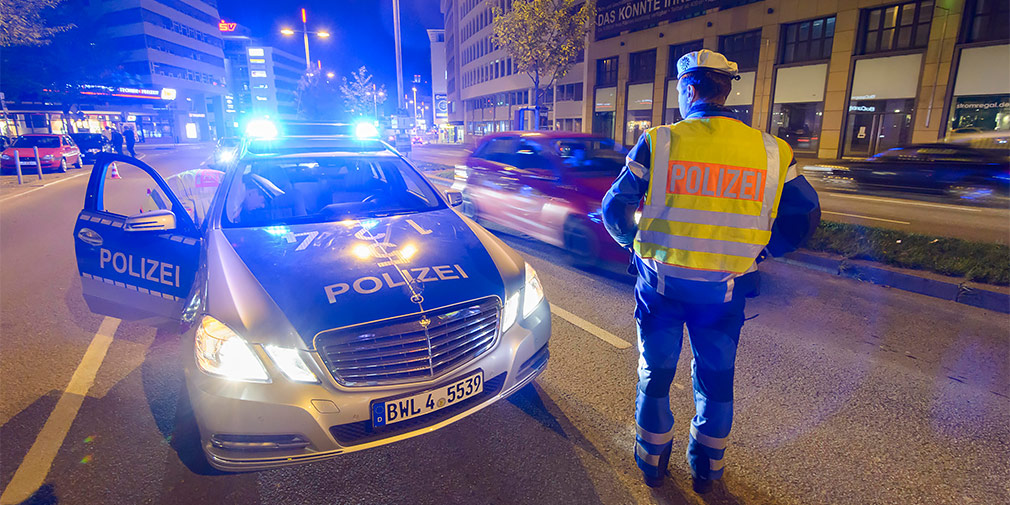A fine of 300 euros and a ban on entry: why international rights are needed
At the height of the holiday season, Russian drivers faced serious difficulties in obtaining international driving licenses (IDPs). According to Kommersant, in a number of large cities, including Moscow, St. Petersburg and Samara, since the beginning of summer, there have not been enough IDP forms. Users of social networks also write about delays.
Official representatives of the traffic police do not confirm the existence of a problem, but there is practically no opportunity to sign up for a document in the department - it is impossible to take an appointment ticket directly at the department, and the public services portal offers an appointment for mid-autumn. We tried to figure out whether it is possible to speed up the process, and whether it is worth getting international rights at all.
Are Russian rights international
International standards concerning traffic rules and types of driving documents are described in the 1949 Geneva Convention and the 1968 Vienna Convention. Most of the countries of the world have signed the first, but not all have joined the second.
Driving documents issued in Russia before March 1, 2011 (pink cards in two formats) are made in accordance with the requirements of the Geneva Convention, but are only national. The newer certificates with paragraph numbering, barcode and extended vehicle categories comply with the terms of the Vienna Convention with all subsequent amendments. Such documents should already be recognized in all countries that have ratified the Vienna Convention.
In states limited to the recognition of the Geneva Convention, an IDL may be required, regardless of the type of national certificate.
What is the difference between MVU
An international certificate is essentially a certified translation of a national document into several international languages, including Arabic and Chinese. The IDL is not an independent document, it can only be used as an annex to official rights and is not valid in the country of issue. The format of the IDP is described in the Vienna Convention and in the order of the Ministry of Internal Affairs No. 206.
An IDP is not mandatory for driving a car in a foreign country, but representatives of the traffic police have the right to demand such a document in order to understand the essence of what is written in the national certificate. At the same time, the presence of an IDP does not at all guarantee the right to drive cars around the world. In some countries, such as China, you can only drive with a local license. And in the United States, which has ratified only the Geneva Convention, no international rights are required.
What threatens the absence of an IDP
If representatives of the police of a foreign state consider the available documents illegitimate, they will be removed from control and fined for driving without a license. For example, in Italy, for the lack of an IDL, you can be fined 300 euros. Without an international driver's license, they may not be allowed into the country.

Practice shows that the police are loyal to Russian certificates. But employees of the rental office can refuse to issue a car, and this happens everywhere. Finally, problems may arise when registering an accident or an insured event - the insurance company may consider improper documents as the basis for refusing to pay.
How to get international rights
Until 2015, IDPs in Russia were issued only by selected departments of the traffic police, but now this can be done in almost any department where there is an examination department. In addition, since March 2017, you can also get an IDP at the local center of public services. Practice shows that it is possible to submit documents to the MFC much faster, but the production of an IDP will take more time, since the public services center acts only as an intermediary between the driver and the traffic police.
To apply for an IDL, you will need a valid driver's license, passport or other identification card, a 35x45 mm matte photo, and a receipt for paying the fee. But you do not need to present a medical certificate - this requirement was canceled back in August 2015. The application can be filled out on the spot, or online on the website of public services.
Contrary to popular belief, a foreign passport is required only for those who permanently reside abroad and are temporarily on the territory of the Russian Federation.

How long and how much does the procedure cost?
The amount of the state duty for obtaining an international driver's license is 1600 rubles. If there are IDP forms in the unit, the document will be produced within an hour. And when applying through the MFC, the public services center will have to be visited twice within three days: to submit documents and to obtain a certificate. If the documents were submitted to the MFC, and the traffic police for any reason refused to issue a driver's license, the agency must give the driver an official refusal indicating the reasons.
The IDL is valid for three years. After this period, the driver will have to repeat the procedure again.
IDP is needed if:
— You are traveling to a country that has only acceded to the Geneva Convention
An IDP is not needed if:
— Your driving license was issued after March 1, 2011 and you are traveling to a country that has acceded to the Vienna Convention
You are traveling to a country that requires a local driver's license

List of countries that have signed the 1968 Vienna Convention
Austria, Bahamas, Bahrain, Belarus, Belgium, Bulgaria, Bosnia and Herzegovina, Brazil, Great Britain, Hungary, Venezuela, Guyana, Ghana, Germany, Greece, Georgia, Denmark, Zaire, Zimbabwe, Israel, Indonesia, Iran, Spain, Italy, Kazakhstan, Costa Rica, Ivory Coast, Cuba, Kuwait, Latvia, Lithuania, Luxembourg, Macedonia, Morocco, Mexico, Moldova, Monaco, Niger, Norway, Pakistan, Poland, Portugal, Republic, Korea, Russia, Romania, San Marino, Seychelles, Senegal, Serbia, Slovakia, Slovenia, Tajikistan, Thailand, Turkmenistan, Uzbekistan, Ukraine, Uruguay, Philippines, Finland, France, Croatia, CAR, Montenegro, Czech Republic, Chile, Switzerland, Sweden, Ecuador, Estonia, South Africa
List of countries that have signed the Geneva Convention of 1949
Australia, Albania, Algeria, Andorra, Argentina, Bangladesh, Belize, Benin, Botswana, Vatican City, Haiti, Gambia, Guatemala, Gibraltar, Hong Kong, Grenada, Dominican Republic, Egypt, Western Samoa, India, Jordan, Ireland, Iceland, Cambodia, Canada, Cyprus, Kyrgyzstan, China, Congo, Laos, Lesotho, Lebanon, Mauritania, Madagascar, Malawi, Malaysia, Mali, Malta, Namibia, Netherlands, New Zealand, New Caledonia, Papua New Guinea, Paraguay, Peru, Rwanda, Swaziland , Singapore, Syria, Saint Vincent and the Grenadines, San Lucia, USA, Sierra Leone, Taiwan, Tanzania, Togo, Trinidad and Tobago, Tunisia, Turkey, Uganda, Fiji, French Polynesia, Jamaica, Japan




